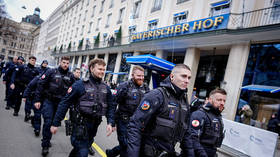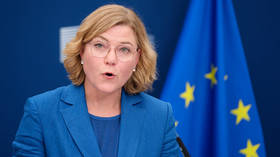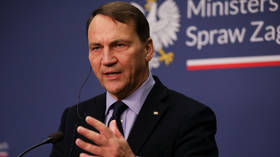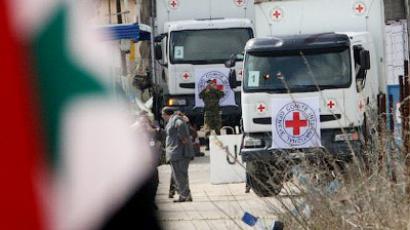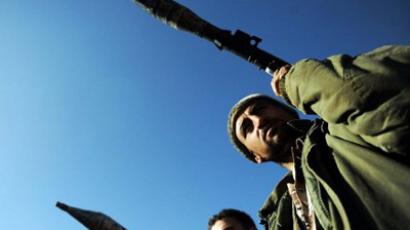Syria holds referendum amid bloodshed
An unprecedented referendum on a new draft constitution has taken place in Syria despite opposition calls for the population to boycott the vote. Once adopted, the new constitution will put an end to five decades of one-party rule.
The ballots are being counted now and the authorities confidently state that Syrians have taken a very active part in the crucial vote.According to an official representative from the Ministry of Information, there were no public order violations in Damascus. Millions of Syrians are believed to have voted on their country’s new constitution. Posters and banners calling on people to vote were everywhere in the capital and all around the country, RT’s Maria Finoshina reports from Damascus. For the first time in the country’s history the Interior Ministry was urging people to vote without actually telling them how they should vote.The draft of the newly proposed constitution has been made public days before the referendum takes place. Hundreds of its copies have been distributed among people to let them know what changes the new law puts forward. The draft constitution includes 14 new and 47 amended articles. One of the main changes is Article 8, which actually ends over 50 years of single-party rule in Syria. It proclaims that political system in Syria is based on pluralism and multiparty system is permitted.Also very important is Article 88, as it says that president of the country could only be elected for two seven-year terms. This change however will come into power only after the next presidential elections, which is scheduled for 2014. There is controversy over some provisions of the draft document. For instance, the new constitution would allow only a Muslim to become president, which the non-Muslim minority is naturally not pleased with.“What about the 10 per cent of others? We are not here temporary; we’ve been living together for ages, we want to be counted. Why [do] they keep it?” one of such disgruntled people told RT.The people behind the draft say it was necessary, especially with the tension so high in Syria’s society. “Ten per cent unhappy is better than 90 per cent angry,” said Ahmad Kuzbari, member of constitutional committee.Still the draft constitution meets the majority of democratic demands of the Syrians. But the big question is whether the government wins public support of the reform. Political analyst Nabil Saman told RT that many people do not trust it. “They're simply not used to it,” he explained.According to the Interior Ministry 14,000 polling stations were set up for the referendum. About 15 million Syrians have the right to vote. However, as Maria Finoshina reports, the referendum may come too late as violence is continuing in the country between the opposition and the authorities.The opposition called to boycott the vote and go on strike. RT’s correspondent says warnings were circling in Damascus that there could have been attacks and explosions at the polling stations during the vote.Meanwhile, a group of countries, led by the US, calling themselves the Friends of Syria have called for tougher sanctions on Damascus.
Political activist Shabbir Razvi believes that the Friends of Syria should be really dubbed “the Foes of Syria," because they are really not working "for the interest of Syrian people.”“The Western powers I think would never be satisfied with any kind of change occurring in Syria or any of the other Middle Eastern countries so long as that change is not in the interest or benefit of the Western powers,” Razvi told RT. “To think that the West can ever be interested for the people of a particular country is laughable.”
After almost one year of unrest in Syria, it has become clear that there are outside forces involved in the conflict, believes Beirut-based political analyst Omar Nashabe. “There are some foreign forces interfering in Syria, smuggling weapons into Syria, smuggling money for these groups to assault the government.”He also notes that the conference held in Tunis proves that the West is ready to remove President Assad at any cost.
Historian and political analyst Peter Rushton told RT that the main challenge for the Syrian government right now is to assure that the referendum gets through smoothly, “without terrorist attacks to disrupt it.”“The major problem for the government in Damascus and everybody on the ground in Syria will be allowing the process to go ahead relatively uninterrupted,” Rushton said. “The key thing will be not just the result of the referendum, but the number of people who are allowed to take part in it and thus it is being shown as a legitimate consultation of the people.”Rushton believes that if any kind of violence takes place during the vote, the West may say: “The result is illegitimate! That may well be the reason why the bombs are going off in the first place.”


